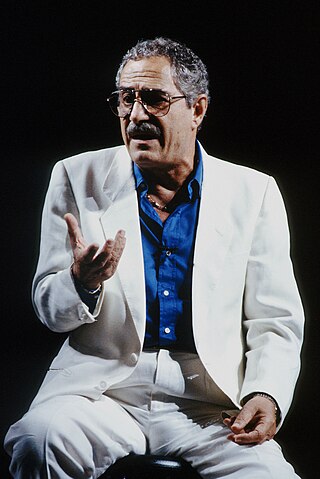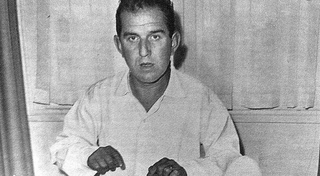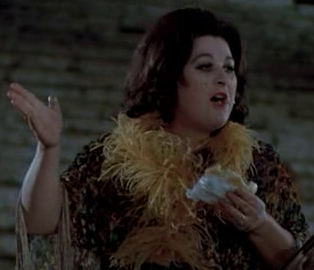
Alberto Sordi was an Italian actor, comedian, voice dubber, director, singer, composer and screenwriter.

Claude Joséphine Rose Cardinale, known as Claudia Cardinale, is an Italian actress.

Saturnino "Nino" Manfredi was an Italian actor, voice actor, director, screenwriter, playwright, comedian, singer, author, radio personality and television presenter.

Michele Placido is an Italian actor, director and screenwriter. He began his career on stage, and first gained mainstream attention through a series of roles in films directed by the likes of Mario Monicelli and Marco Bellocchio, winning the Berlinale's Silver Bear for Best Actor for his performance in the 1979 film Ernesto. He is known internationally for portraying police inspector Corrado Cattani on the crime drama television series La piovra (1984–2001). Placido's directorial debut, Pummarò, was screened Un Certain Regard at the 1990 Cannes Film Festival. Three of his films have competed for the Golden Lion at the Venice Film Festival. He is a five-time Nastro d'Argento and four-time David di Donatello winner. In 2021, Placido was appointed President of the Teatro Comunale in Ferrara.

Francesco Rosi was an Italian filmmaker, screenwriter and theatre director. His film The Mattei Affair won the Palme d'Or at the 1972 Cannes Film Festival. Rosi's films, especially those of the 1960s and 1970s, often appeared to have political messages. While the topics of his later films became less politically oriented and more angled toward literature, he continued to direct until 1997, his last film being the adaptation of Primo Levi's book, The Truce.

Antonio Pietrangeli was an Italian film director and screenwriter. He was a major practitioner of the commedia all'italiana genre.

Commedia all'italiana, or Italian-style comedy, is an Italian film genre born in Italy in the 1950s and developed in the 1960s and 1970s. It is widely considered to have started with Mario Monicelli's Big Deal on Madonna Street in 1958, and derives its name from the title of Pietro Germi's Divorce Italian Style (1961). According to most of the critics, La Terrazza (1980) by Ettore Scola is the last work considered part of the commedia all'italiana.

Rodolfo Sonego was an Italian screenwriter.

A Girl in Australia is a 1971 Italian comedy film directed by Luigi Zampa, with stars Alberto Sordi and Claudia Cardinale.

Giacomo Matteo Furia was an Italian film, television and stage actor. He appeared in more than 130 films between 1948 and 1998.
The Acqui Award of History is an Italian prize. The prize was founded in 1968 for remembering the victims of the Acqui Military Division who died in Cefalonia fighting against the Nazis. The jury is composed of seven members: six full professors of history and a group of sixty (60) ordinary readers who have just one representative in the jury. The Acqui Award Prize is divided into three sections: history, popular history, and historical novels. A special prize entitled “Witness to the Times,” given to individual personalities known for their cultural contributions and who have distinguished themselves in describing historical events and contemporary society, may also be conferred. Beginning in 2003 special recognition for work in multimedia and iconography--”History through Images”—was instituted.

The Inspector Montalbano television series are Italian police procedural stories. Based on Andrea Camilleri's detective novels, they are located in the imaginary town of Vigàta, Sicily, which is based on Camilleri's native Porto Empedocle. The series protagonist, Salvo Montalbano, is the police chief, or commissario.

Le coppie is a 1970 Italian comedy film directed by Mario Monicelli, Alberto Sordi and Vittorio De Sica. It consists of three segments.

Maurizio Micheli is an Italian actor, voice actor, comedian, author, playwright and television personality.

Antonio Rubino was an Italian illustrator, cartoonist, animation director, screenwriter, playwright, author and poet. He was the most prolific comics illustrator in Italy before World War I.

Rossana Di Lorenzo was an Italian film actress.
Fausto Saraceni (1920–2000) was an Italian film producer and director. He was married to the actress Teresa Pellati. He produced several comedies starring Alberto Sordi, and worked frequently with Dino De Laurentiis.

Countess Maria Gioacchina Stajano Starace Briganti di Panico, known simply as Giò Stajano (1931–2011), was an Italian socialite, writer, journalist, actress, and painter. In the 1960s, before her transition and gender reassignment surgery (1983), she was known as one of the first publicly out gay men in Italy. It is said that her night swim in the Barcaccia Fountain inspired Federico Fellini's scene featuring Anita Ekberg in the Trevi Fountain in La Dolce Vita (1960).
















